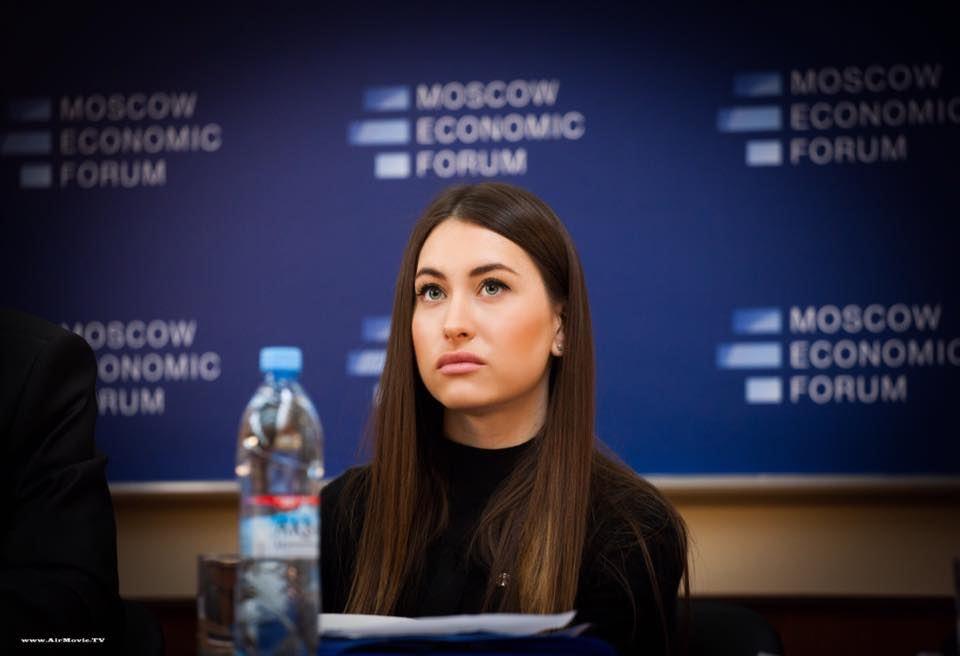Transport corridors to allow Azerbaijan meet emerging hydrocarbon needs

By Trend
Azerbaijan, just like Russia, is at the intersection of two Eurasian corridors, stemming from two rapidly developing economic centers, namely China and India, to the EU market, a researcher at the Center for Post-Soviet Studies of Russia’s Moscow State Institute of International Relations (MGIMO University) Olga Podberezkina told Trend.
Podberezkina noted that the construction of transport corridors will give Azerbaijan and Russia not only the opportunity to meet the needs of emerging markets in hydrocarbons, but also the opportunity to offer transport and logistics services for the freight transit.
“Transit routes mainly go by sea and the main beneficiaries are European and US companies,” she added. “Development of transport infrastructure and logistics services will help change this. In particular, if we talk about the International North-South Transport Corridor, many bilateral and multilateral projects are being implemented within its framework. In 2020, the reconstruction of the Sumgayit-Yalama railway section will begin between Russia and Azerbaijan as part of a project to organize high-speed passenger traffic between Russia’s Dagestan and Baku.”
“The long-awaited construction of the Astara-Rasht-Qazvin railway, designed to connect the existing railways of Azerbaijan, Iran and Russia (a tripartite agreement was signed in 2005), will become a significant shift in the development of the International North-South Transport Corridor,” said Podberezkina. “To date, the 205-kilometer long section between the Iranian cities of Qazvin and Rasht has been completed. As a result, Qazvin is connected by rail with Tehran, as well as with the Iranian ports of Bandar Abbas in the Persian Gulf and Amirabad in the Caspian Sea.”
International sanctions against Iran are an unfavorable factor, the expert noted.
“To compensate for the negative impact of international sanctions against Iran, Azerbaijan proposed to finance the construction of the Rasht-Astara branch for 500 million euros, and this is certainly a positive thing,” Podberezkina added. “Also, a decrease in the cost of railway supplies through Azerbaijan will be a positive aspect - so tariff reductions may affect the transportation of containerized cargo, grain, cotton, sulfur, urea and metals. Russian producers are interested in delivering up to 50,000 tons of grain annually to Iran through Astara. As is known, on Oct. 27, 2019, the Interim Agreement came into force, leading to the formation of a free trade zone between the Eurasian Economic Union (EAEU) and Iran, under which the EAEU countries will reduce import duties on 502 goods. Negotiations are underway to conclude an agreement on a free trade zone with India - these are all the countries participating in the project.”
The researcher noted that the International North-South Transport Corridor compared to the route through the Suez Canal reduces transportation time by 10 days and provides an additional incentive to economies.
“On average, containerized cargo from Russia to Iran (from St. Petersburg to Bandar Abbas) goes 25-28 days with two transshipments (via the ports of Rotterdam/Hamburg in the North Sea and to the Port of La Spezia in the Mediterranean Sea), and transit time through the ports of the Caspian Sea from Pervouralsk city to Bandar-e Anzali is 20-25 days at a comparable cost,” Podberezkina said.
In conclusion, the expert noted that the cargo flow through the International North-South Transport Corridor will contribute to the growth of Russian-Indian trade, the positive influence of which on Azerbaijan’s economy is obvious.
---
Follow us on Twitter @AzerNewsAz
Here we are to serve you with news right now. It does not cost much, but worth your attention.
Choose to support open, independent, quality journalism and subscribe on a monthly basis.
By subscribing to our online newspaper, you can have full digital access to all news, analysis, and much more.
You can also follow AzerNEWS on Twitter @AzerNewsAz or Facebook @AzerNewsNewspaper
Thank you!
